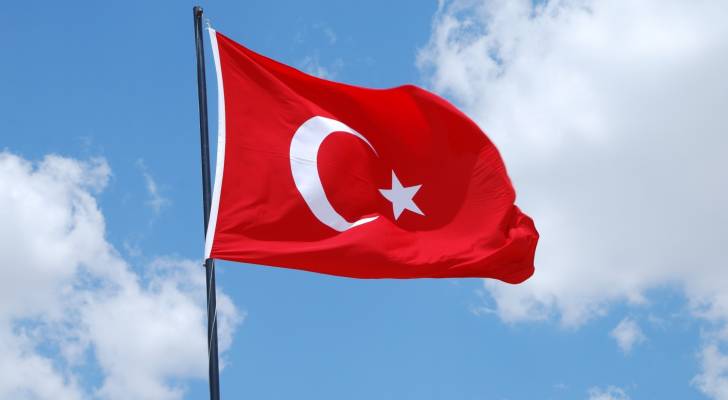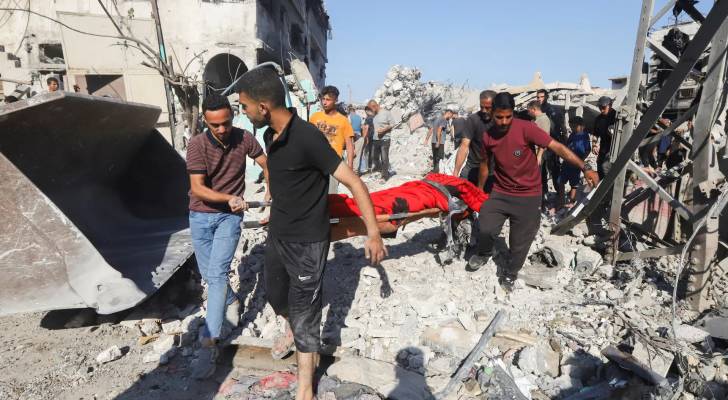The Post-Gaza Tragedy - By Sawsan al-Abtah, Asharq Al-Awsat
No sane person can think that the horrors unfolding in Gaza can simply be swept under the rug and forgotten the moment the guns fall silent. This war is the kind of cataclysmic event that stretches across time and etches itself deep into the collective conscience.
The horror now goes beyond Gaza itself. Many are afraid of the prospect that it could become a model, the norm in future conflicts, which major powers (more than minor ones) are already preparing for. Two million civilians have been besieged, and they are being killed in broad daylight, live on air, amid deafening silence and disheartening indifference. Power cuts, hospitals bombed, schools flattened over children’s heads. Displaced people burned in their tents. Patients assassinated in their hospital beds. Civilians are being starved and then hunted down as they seek bread.
A very long list of unspeakable crimes has been committed, while the world and international institutions respond with nothing but a chorus of condemnation and outrage that borders on complicity, replacing real action with rhetorical warnings intended to save face.
The French war historian Jean-Pierre Filiu, who managed to enter Gaza - where he says the scenes he witnessed were worse than anything he had seen in Afghanistan, Iraq, Serbia, or even Somalia - offers a stark warning in his new book Historian in Gaza. “All of humanity should be alarmed. This is not just another Middle Eastern war, confined in space. It is a laboratory showing us what the world could look like in a few years-” a place of ethnic cleansing with no laws, ruled by the law of the jungle, where the strong devour the weak and humanitarian aid is controlled by private corporations. “The world I saw in Gaza is terrifying, for all of us. Because it tests our humanity and sketches out the future ahead.”
His words are chilling, but Filiu is not alone in his assessment. Still, his words carry particular weight because he is speaking from firsthand experience.
Psychologists, too, are warning of another threat: repeated exposure to violent images on social media and television, as is the case now, has the opposite of the intended effect. It numbs our emotional response. The viewer, who should be shaken to their core, finds themselves indifferent to these images as they become part of routine. A kind of “psychological anesthesia,” as the psychologist Paul Slovic calls it, takes hold. In other words, when exposure to violent scenes becomes too frequent, we retreat into apathy to protect ourselves. In a nutshell, it leads to the “death of conscience.”
There is perhaps no more powerful insight than that which Hannah Arendt offers us in her famous book “Eichmann in Jerusalem,” which goes over the trial of one of the Nazis involved in the Holocaust after his arrest in Argentina and transfer to Jerusalem. The Jewish philosopher notes that Eichmann was not the monster or demon she had imagined. Rather, she found him to be an ordinary man: an obedient man belligerently performing his role like any bureaucrat carrying out routine tasks.
This is what she called “the banality of evil.” Evil, she argues, does not necessarily arise from hatred or personal vengeance but from immersion in a system and passively swimming with the wave, mechanically and without reflection. It is this kind of evil that threatens our shared humanity, as it deprives us of our moral compass.
Filiu notes that no Israeli has visited Gaza since 2007. Soldiers enter fully armed inside armored vehicles, with the battle managed from behind screens and inside tanks. Everything is monitored and orchestrated remotely, and it is filmed by drones or satellites. This “banal evil” has thus become widespread, threatening to spread well beyond Israel’s borders.
This “banal evil”, far from having been buried with Nazism, seems to be remerging, this time with global complicity. Media outlets, major powers, international organizations, NGOs, and multinational corporations are all playing a part. Humanity has lost its mind, slipping into what psychologist Albert Bandura called “moral disengagement”: people are resorting to sanitized, euphemistic language to characterize the massacres and absolve themselves of responsibility by looking the other way.
Arendt didn’t blame Eichmann alone for the crimes. She also blamed the society that allowed them to happen, the media that stayed silent, the judges who facilitated his actions, and the citizens who looked away. Evil requires more than criminals; it requires silence, justification, normalization, and blind obedience, she tells us. If there is no accountability for the crimes in Gaza, mass murder will become routine, starvation will become a common weapon, and evil will be tolerated as a fact of life.
No one seems to care about the displaced people being killed, premature babies being deprived of oxygen, or the murder of a mother and her child as they scrape for food. Footage of bombardment and starvation goes viral and racks up likes and shares, and then everyone returns to their daily lives.
And then Brigitte Bardot appears from her elegant countryside home, where she now lives after retiring, and furiously declares that all she wants from life, and from these savage humans, is for them to stop killing foxes, an animal she adores and cannot bear to see harmed. That is her final wish, the wisdom she acquired over the years in distilled form.
Latest News
-
 Trump shouts at Netanyahu in fiery phone call over Gaza hunger: report
Trump shouts at Netanyahu in fiery phone call over Gaza hunger: report
-
 Turkey urges global pressure to halt “Israel's” Gaza plan
Turkey urges global pressure to halt “Israel's” Gaza plan
-
 $50 million: US doubles bounty on Venezuela's Maduro
$50 million: US doubles bounty on Venezuela's Maduro
-
 20 Palestinians killed overnight in "Israeli" Gaza strikes, including 5 waiting for aid
20 Palestinians killed overnight in "Israeli" Gaza strikes, including 5 waiting for aid
-
 Trump says 'billions of dollars' now flowing into US after tariff deadline
Trump says 'billions of dollars' now flowing into US after tariff deadline